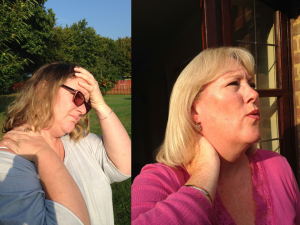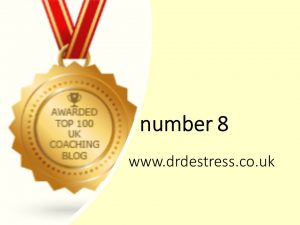Did you know that the most common reason people see a GP is a back problem? And did you know that the most common cause of this back problem is stress?
Stress starts as a mental process; worrying thoughts, confusion, difficulty to think straight, which then leads to emotions as nervousness, anxiety, frustration. Behaviour starts to change, such as skin picking, toe-tapping, shallow and quick breathing and the last step in the stress sequence is the manifestation in the body as a disease, condition or discomfort, like back pain.
Stress is like a tricky octopus – it sneakily works its way into all aspects of your being and allows you to pretend it isn’t there because you can live with most symptoms for a while. And then……….. it attacks.
There goes your back, or your neck or your shoulders for that matter.
If stress is combined with intense exercise, your chances of a back injury are even higher. For tips on how to deal with athletic injuries, click here.
GPs might sometimes refer to a Prozac solution, but much better, there is a trend to offer alternative solutions, such as a gym membership or mindfulness meditation. Sometimes natural supplements, such as turmeric, can help as a treatment option for back pain.
Meditation has some really big advantages: it is easy, it doesn’t have to take long and you can do it everywhere at any time. It offers a flexibility that is unbeatable. Dr Jon Kabat-Zinn, the founder of modern mindfulness, has done a lot of research into the benefits of mindfulness (University of Massachusetts) and has proven that regular practice reduces stress activities in the brain, tackling stress at its very first manifestation.
Even if you don’t have back pain, you might have other stress signals and you will benefit from a meditation practice.
Tips on how to start with a simple breathing exercise:
- Set aside just 5 minutes
- Put a timer on, switch phone off
- Choose a place where you can sit comfortably
- Close your eyes, check how you are feeling and then start concentrating on your breathing
- Breath in through your nose in 4 counts
- Hold your breath for 3 counts
- Have your tongue against the top of your mouth and breath out in 7 counts
- Hold your breath for 3 counts
- Continue concentrating on your breathing until you hear the timer
- Then take a deep natural breath, without counting, check how you are feeling and gently return to your daily life.
Every week I send out a ‘seriously uplifting tips from the coaching couch’. To receive my tips in your inbox click here


